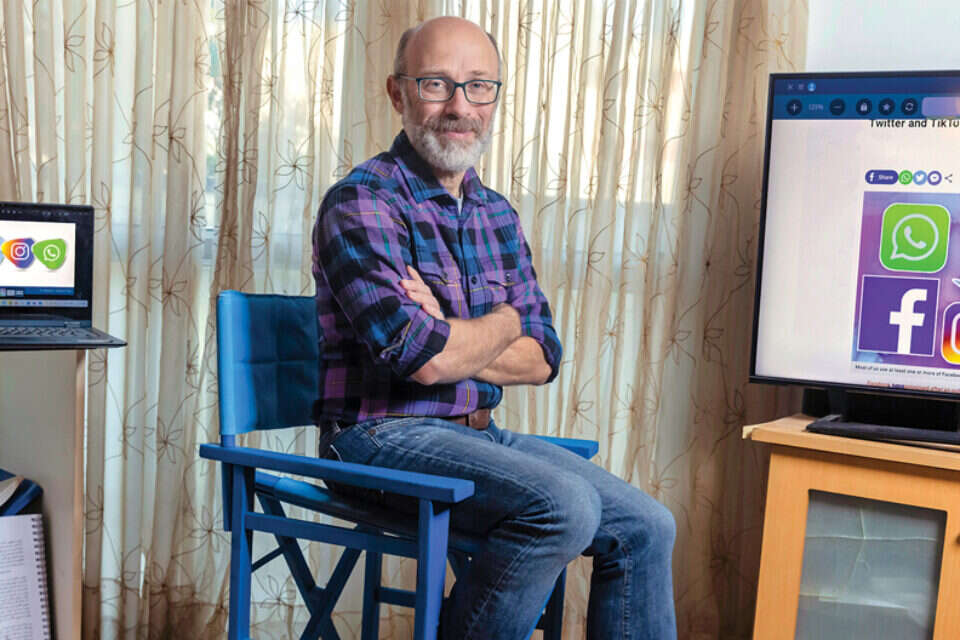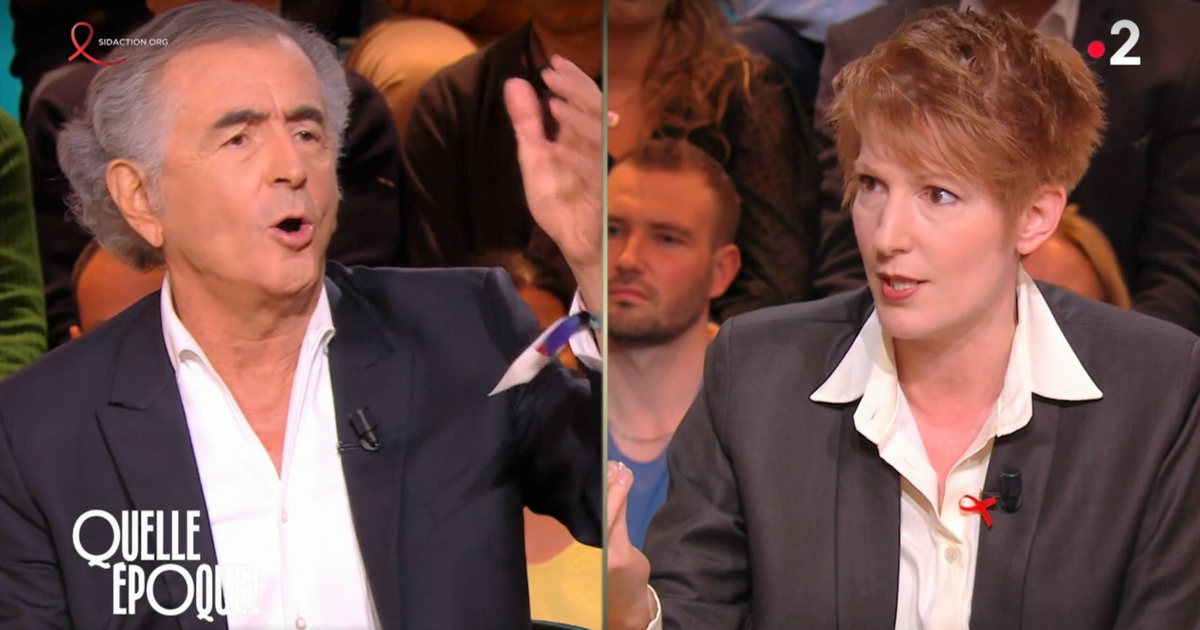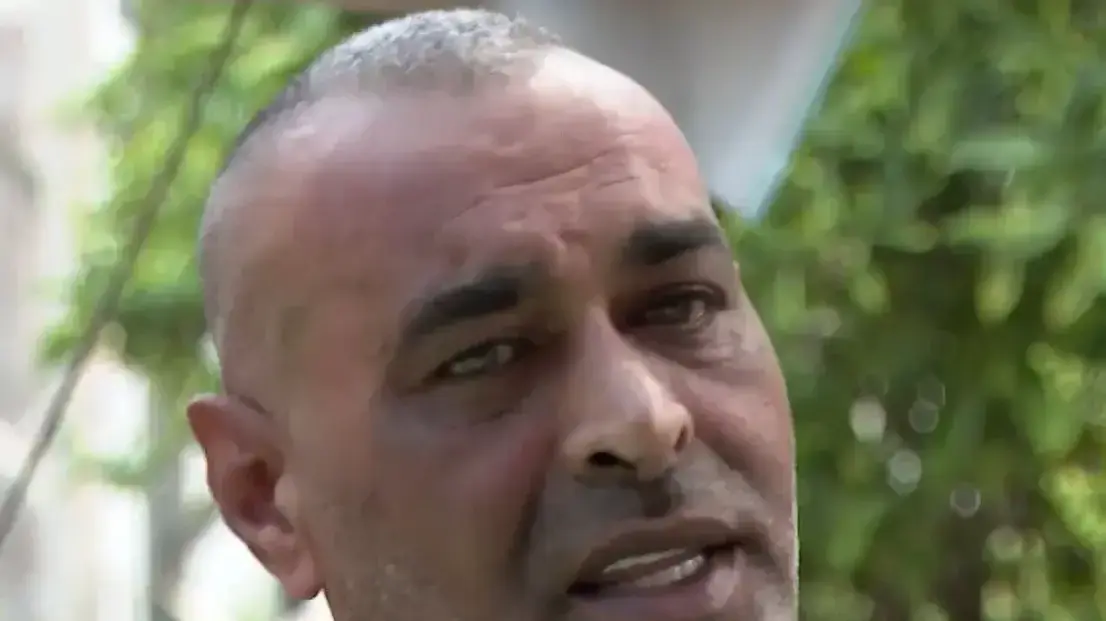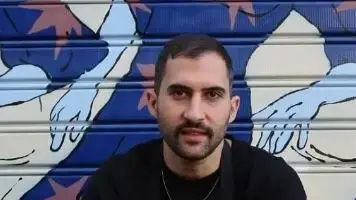Prof. Haim Noy
researches the fields of language, discourse and communication,
head of the School of Communication, Bar-Ilan University.
The outgoing chairman of the Israel Communication Association
Prof. Haim Noy, how does a researcher at the university, the head of the school of communication, get to the point where he is in the process of writing an essay on an Israeli pop song?
"Networks today have unprecedented power. This is, among other things, because there are many networks, and because each network includes several different options or 'sub-networks.' Only landlines were used, and we called someone else's house. Singer Nono's song, 'Cute Boy,' brought me back to that time, when she asks, 'Where are you, are you here?'
"In my youth, in Jerusalem, this was an irrelevant question. The number and prefix revealed to us where a person lived. At the time, Gashesh had the song 'Only Jerusalem 02'. There was no need for 'Hello, where are you?'. On the other hand, when I called my aunt to ask how she was during the Dan Shilon's circle,' she used to answer: 'I'm in Dan Shilon.'
A space that seems to have no other words to describe it.
"Not really. It's no coincidence that they started with 'Hello, where are you?'. When we became mobile, this question became relevant. In 'Cute Boy' Nono is actually humming to the 80s and 90s. In many performances of the song on Tiktok, which keeps me busy Quite a few people hold a telephone. In one of them someone even holds a public telephone receiver. In my opinion, the answer 'here not here not here here' is an answer of the Internet and the digital space. In the past, the game between here and there did not exist. Today when you answer the phone it is It doesn't matter where you are - at home, outside or in another show you're watching. You're online."
"In the past, there was no game between here and there."
Nono, "Cute Boy", photo: from YouTube
I am here and there, and everywhere.
"Exactly. 'Here not here not here here'. That's my claim and it's the essence of our new life. That's why this rhythmic song, whose chorus is 16 seconds long, helps me perceive reality in a way I never thought. The web is a new space, where people are available and accessible All the time, and it's terribly difficult, almost impossible, to disconnect and leave. This, of course, is in contrast to the radio or television, which could be turned off when necessary. When it comes to several networks, then the power of things is a hundred times greater."
echo the same voice
This power is also relevant to the time in which we live. We are in the weeks when violence pervades Israeli society, especially that on the roads. As a discourse and communication researcher, do you recognize a unique connection between what is happening on social networks and reality?
"There is a study that examined the effect of social networks on communication between people. One of the conclusions reached is that the networks may escalate situations, divide people."
It's not like before social networks, humanity was a single peace.
"True. But the networks certainly did not calm the divisions that existed anyway. There is something in the structure of the networks and their design, in the algorithms, so that they direct you to people with similar opinions. On the one hand, this creates a situation in which a person is exposed to at least different opinions and at least diverse interests, and at least other people, and on the other hand it leads to escalation and provocations, which leads to more traffic, and traffic, in turn, is what the networks want. More traffic equals more money and profits from advertisements, and from the sale of the knowledge gathered about us - the surfers."
It sounds like a circle that feeds itself: less pluralism, more traffic, and more friction between people.
"Ultimately, the logic is - if a person likes and is attracted to certain opinions or areas of interest, let's bring them more of them. Little exposure to different opinions creates homogenization, and Facebook and the like work like this: the echoes of the same voice. And this homogenization leads to extremism. People upload content, disconnect from reality and create a collective alternative reality for themselves on the network. The way to combat this is through educating the users, paying attention to the important things and also through regulation on the network, that is, verifying what types of manipulations are being done on the users. Let's remember that the design of the networks and the algorithms were not written by aliens, but by my own people Adam. So we shouldn't blame the technology, but what they brought it to do."
A white and non-diverse programmer
What actually happens when a person is exposed for a long time and consistently to opinions similar to his own, while in reality, almost by surprise, he is exposed to a different opinion? This gap may explain part of the flare-up of cases of violence in Israel and around the world.
"Think about the city square of old, about the public space where people meet and exchange opinions. The sociologist and philosopher Jürgen Habermas wrote that the public space is the place for citizens to talk, discuss social and political matters. But the networks are not used as such a space, but as a homogeneous, monotonous area, and when you go outside to them and we come across something else - misunderstandings arise at best, and actual violence at worst. It is advisable to remember that the networks are private and not public bodies, with one goal: maximizing profits.
"But the nature of technology cannot be summed up as good or bad. Radio technology was considered an excellent thing, but the massacre of the Tutsi in Rwanda, for example, occurred due to the use of state radio. The radio broadcasts allowed the perpetrators of the massacre to know how to proceed with the murder.
"Nowadays, when the programmers of social networks are white men from Western countries, this harms communities that are not white or have similar characteristics. Those who program do not necessarily take ethnic diversity into account. The networks accelerate violent discourse, provocative discourse, or anything that creates a strong movement on the network. But it is clear That a Facebook software engineer must do things in a different way - to be professionally competent, but not only to program but also to pay attention to the ethical aspect."
The networks claim that they do not produce the content, but are only a conduit.
"This is of course a formal claim, not a substantive one. Social networks have a more decisive role in controlling content, and perhaps they should not remain in the innocent position. It is clear that networks do not want to impose more criticism on themselves, and that is why we are seeing various oversight initiatives from the public and elected bodies around the world. After all, networks are All the time they are political, not in the sense of right and left, but in the sense that they want to make a profit. They are not funded by the state, so when you do an ethnography of networks, the field from the beginning is political and includes many interest systems."
Also in the political sense, we have seen cases of transition between networks.
"Two academic articles were recently published in Hebrew about the protest of Palestinian activists in Sheikh Jarrah and the shaming of Bedouin women who want to study in the south. The interesting thing about Sheikh Jarrah activists is that their Facebook accounts were closed, so they moved or migrated to TikTok. The idea is that You from one network, with regulation and censorship, and you immediately pop up on another network. It's an interesting game between networks."
These transitions also occur between physical and virtual spaces.
Protests thwarted in the physical space are growing online.
"True. When the police arrest some of the activists in the field, they move to protest online, and then from one social network to another. The more difficult it is for a person to express a protest in the public space we mentioned, the more he enters the world of networks and virtual space and moves within it - to avoid restrictions."
If we return to the topic of violence, your research also dealt with communication from the gender angle - masculinity in the Israeli context.
"Masculinity and violence are related in that a large part of the spread of violence and hatred is expressed in pornography and misogyny on the Internet, on WhatsApp for example. A generation ago, people would not have even considered being part of such an industry, but today part of the mainstream is there. At an event I attended at Bar-Ilan University for International Women's Day, talk about normal men who occasionally send pictures of naked women on WhatsApp. This is shocking, and is made possible by messaging networks and apps.
"In my youth, pornography was considered a marginal and marginalized thing, perhaps like pedophilia today. Pornography is associated with masculinity because it is a male act, which is connected to men's circles and connects to a discourse of violent and controlling masculinity. It can be said that a male act such as consuming pornography predicts violence in the physical space. There are many studies that have shown that Exposure to violence and watching it is not a passive thing. The visual elements enter the head and take hold of the imagination and the body. This poison cannot be forgotten when moving from a virtual space to a physical space - and vice versa. You do not go back to being the person you were before watching it. In general, many of the incidents of violence are related to male discourse, certainly in relation to for women".
This is a figure that has not really changed over the years. But what has changed is masculinity, which has become more digital. Not sure that in the past a man on a social network or one connected to his phone around the clock was a legitimate look.
"This is an interesting point. In the past, back when the first home computers started, it was mainly women who surfed and corresponded on them and on mobile phones. But today, the roughest men do it. They have accepted the fact that they can be more on the mobile phone and still remain men - and they do what it takes to justify it".
Black heart and fascism
You also research emojis and literacy. What happens to our verbal communication when there is an increased use of emojis? It has already been reported in the past about a drop in the expression scores of Israeli students. Is our verbal communication impaired as a result of using emojis?
"True. I teach a course on emojis and stickers, digital stickers, which constitute non-verbal communication. I am not convinced that the drop in expression scores of Israeli students is necessarily related to emojis. I recognize the state's ever-smaller investment in education, and the reductions hurt the students and also reach Higher education. Universities are lowering the admission and teaching standards for students, the grade requirements and the level of English. So more than emoji, this is about investing in education. It's not right to put everything on the smiley.
"At the same time, I believe that there is a literacy of emojis, and there are those who know how to use them very beautifully and sophisticatedly - also in relation to words. Emojis have diverse meanings. An eggplant, for example, can have a sexual meaning, and on the other hand - a black heart and a stop motion with a spoon The hand is associated with fascism in Italy. These are elements related to literacy, understanding words, and beyond that - the ability to choose symbols and associate a literal meaning with them. Stickers, on the other hand, are more cultural and personal, and can be visual and verbal at the same time. It's a real language."
In conclusion, I must ask how you think our discourse will look in the future.
"I believe that the essence of our perception of social networks will change, and as a result the discourse will also change. For example, one of the doctoral students I supervise wrote articles about how the Facebook network actually consists of several social networks, or more precisely different sub-platforms that include profiles, groups, business pages and more. Each of them has different technological options and is used for very different social, cultural and political needs. Facebook is a kind of building with different floors, and each floor is a kind of social network in itself. In each room there are different people and different options. This is also true for Tiktok and the other networks.
"Accordingly, the forms of discourse and participation and our social activity will change. If you will, in each social network there will be continents, and in each continent different languages will be spoken. It will not be possible to generalize about the discourse on the Facebook network, because in different 'countries' in which different languages will be spoken. In another study, Doctoral student Shirley Drucker-Shetrit and a team of postdoctoral students led by Dr. Avital Ben-Atar and Dr. Omri Greenberg examine space and place on the Google network, for example in relation to the peripheries in Israel. Where is 'here' and 'there', in relation to the Gaza Strip, for example" .
As you explain it, it sounds like the evolution of discourse in networks is actually going to a place of diversity, heterogeneity.
"Different and diverse spaces will be created here, yes. A host of features and languages, which result from the fact that the page will be distinguished from the profile, from the groups. A situation will be created in which the online and physical spaces will merge into a communication space within and between other networks."
Perhaps the algorithm will also change accordingly and become more diverse, heterogeneous.
"Possibly. The terminology will change and the network will encourage a different use of it. The whole essence of cyberspace will change, and it will become one big 'here not here not here here'."
For suggestions and comments: Ranp@israelhayom.co.il
were we wrong
We will fix it!
If you found an error in the article, we would appreciate it if you shared it with us







/cloudfront-eu-central-1.images.arcpublishing.com/prisa/TY47FSPP2RB4BEVHHZRVRO4QLY.jpg)
/cloudfront-eu-central-1.images.arcpublishing.com/prisa/TDCBEVLLRFEQ7OHE6JE6GJ7GQA.jpg)






